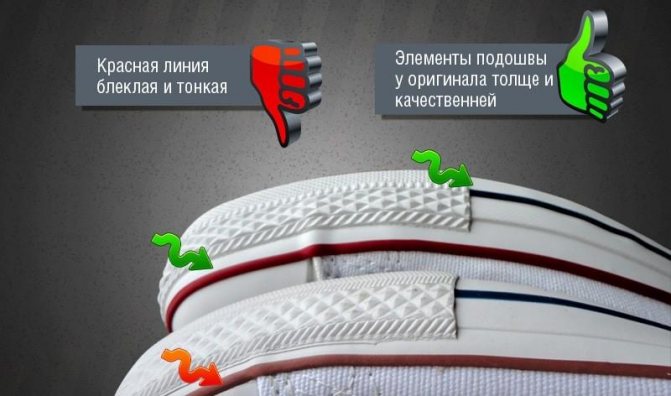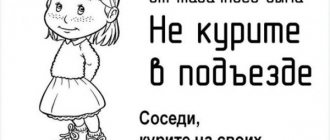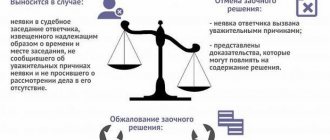Types of customer fraud
Actions that constitute deception of the buyer are committed by organizations and private entrepreneurs when selling goods or providing services to the public. Resolution of the Plenum of the Armed Forces of the Russian Federation No. 18 of 2006 determines that officials and other employees of organizations and individual entrepreneurs (for example, cashiers in stores) can be held liable.
- Body kit . It means the sale of products that have a lower weight than that stated in the retail contract;
- Measuring . Release of goods having a smaller size than specified in the retail contract;
- Calculation . Requiring from the buyer a sum of money exceeding the actual cost of the goods;
The object of the violation in case of deception is the property interest of the buyer and his rights established by a regulatory legal act or contract.
Fraud of consumers in the Criminal Code of the Russian Federation
3 ways to get a free legal consultation
01
online free
02
Call toll-free line 8 (Moscow and regions of the Russian Federation)
03
Leave a request to our lawyer in the online chat, he will call you back in 5 minutes
Free consultation with a fraud lawyer Prices for fraud lawyer services
Petr Romanovsky, lawyer 15 years of experience, specialization - housing, family, inheritance, land, criminal cases.
Many users are faced with deception from manufacturers or sellers of goods and services. As practice shows, consumers most often encounter this phenomenon in the field of trade.
It is generally accepted that consumers are most often subject to fraudulent actions in spontaneous markets, but fairly large retail chains are not against making money from gullible customers.
Therefore, when interacting with sellers, it is necessary to show maximum attention, and you should know what to do in cases where you are outright deceived.
Types of deception in trade
Deceiving the buyer is one of the illegal actions against consumers in the market relations segment. Every buyer can encounter this phenomenon, and it is extremely difficult to determine when sellers are telling the truth and when they are outright lying.
There are many methods of deception that are used to obtain certain benefits. Among the most common are:
- Weighing and measuring. In this situation, the seller releases a product that initially has less weight and overall dimensions than stated in the product characteristics.
- Concealment. The seller does not return excess funds transferred to him by the buyer. The most striking example in this situation would be non-return of change.
- Calculation. In this situation, the seller initially takes a larger amount of money for the goods than is provided.
- Selling counterfeit goods. Instead of removing the unusable product, the seller sells it. Counterfeit products are products of poor quality, for the manufacture of which cheap substitutes or low-quality components were used.
- Sale of expired products. The consumer should always look at the expiration dates of the product. Very often, stores and markets sell products that should have been scrapped long ago.
- Selling defective or hazardous products. In this situation, the seller is obliged to write off the product or remove it from sale if it is determined that the product may cause harm to the user. However, the goods remain on sale, although they are sold at reduced prices.
- Deception of a person regarding the quality of a product (service) and its consumer characteristics.
Consequences of the crime
3 ways to get a free legal consultation 01
online free
02
Call toll-free line 8 (Moscow and regions of the Russian Federation)
03
Leave a request to our lawyer in the online chat, he will call you back in 5 minutes
Free consultation with a fraud lawyer Prices for fraud lawyer services
Fraud against consumers carries with it a whole list of certain negative consequences. First of all, a violation leads to economic and moral damage to the user. By purchasing a low-quality product, or becoming a victim of deception, the consumer loses his money, which initially causes certain negative emotions.
In some situations the consequences are more dire. A low-quality product that has expired or contains dangerous carcinogens can cause serious illness in the consumer, resulting in significant costs or even death.
To prevent such situations, legislation establishes criminal liability for fraudulent actions against consumers. In addition, supervision of market relations is carried out by a special authority - Rospotrebnadzor, whose responsibilities include protecting consumers from deception by the seller of a service (product) and ensuring conditions for normal interaction in the market.
Characteristics of the crime
Defrauding a buyer is a criminal offense. In view of this, a certain characteristic of illegal actions of this nature is enshrined at the legislative level.
The subject of a criminal act is a product or service, in particular its monetary equivalent. Moreover, the object can be not only a specific product, but also the actions of sellers that resulted in damage to the consumer (weighting, measuring, etc.).
The objective side of the crime is to deceive the buyer. This means that the consumer is initially provided with false information regarding the characteristics of the product, its cost and dimensions.
Manufacturers of goods (services), sellers of retail chains and individual entrepreneurs can act as subjects of criminal activity. Criminal proceedings may be initiated against them, however, provided that the dishonest seller is fully capable and is at least 16 years old.
As for the crime scene, an illegal act against consumers can be carried out anywhere, from product sales points on the market to supermarket shelves.
Responsibility for deception
As statistics show, most often buyer deception is committed in trade and catering organizations, enterprises providing utilities and household services.
In accordance with the provisions provided for in Article 200 of the Criminal Code of the Russian Federation, any illegal actions that entail certain consequences, including those of an economic nature, for the consumer are subject to appropriate punishment.
At the same time, it was determined that liability will occur only if the victim’s losses in monetary terms amount to at least a tenth of the established minimum wage.
Otherwise, administrative liability may be applied to the violator, or a warning may be issued.
As for imposing a more severe punishment, specific reasons and circumstances must be established for this.
If it is determined that the deception was not intentional, all charges against the accused will be dropped. Economic measures are most often used as punishment. For deception, the offender will be obliged to compensate for material and moral damage to the victim, and to pay a fine amounting to at least half of the amount of damage.
If there are certain aggravating circumstances, then a court decision may also be made to ban commercial activities. A similar measure is most often established in relation to those violators who have already had problems with the law for similar reasons and have been punished under Art. 200 of the Criminal Code of the Russian Federation.
Useful information on fraud
Source: https://advocate-service.ru/fraudulent/obman-potrebitelej.html
Applicable sanctions under the provisions of the Code of Administrative Offenses of the Russian Federation
| Wearing, measuring, calculating and other ways to deceive buyers | |
| For physical persons | Varies between 3-5 thousand rubles. |
| For officials | From 10 to 30 thousand rubles. |
For legal entities Articles on the topic (click to view)
persons | From 20 to 50 thousand rubles. |
| Indicating false information about the product, misleading the buyer. Information subject to mandatory indication is listed in Art. 10 of the Law on Consumer Protection | |
| For physical persons | From 3 to 5 thousand rubles. |
| For officials | From 12 to 20 thousand rubles. |
| For legal entities persons | From 100 to 500 thousand rubles. |
If fraud is detected, it is necessary to send a written complaint to the seller through whose fault the fraud was committed or to the territorial office of Rospotrebnadzor and law enforcement agencies. For more information on where to complain about violation of consumer rights, read this article https://potrebexpert.online/6495-kto-zashhishhaet-prava-potrebitelya
Based on the results of consideration of the complaint, an investigation is carried out. Identification of the facts set out in the complaint serves as the basis for bringing the perpetrators to justice under the Code of Administrative Offenses.
If an organization or individual entrepreneur, through whose fault the buyer was deceived, refuses to pre-trial resolve the conflict situation that has arisen, then the consumer has the right to file a claim in court (Article 17 of the Law of the Russian Federation).

How to prove misrepresentation
The ways to prove misrepresentation depend on the exact reason for which the citizen believes that his rights were violated.
The easiest way is to prove that the trademark on the product does not correspond to reality. Famous brands are never limited to just their name on the product. For example, in addition to a certain quality qualification, special inscriptions and markings on branded bags are on all clasps, and sometimes on the lining. Also, many of the brand’s items have special seams for internal processing.

The difference between original Converse brand products and fakes
It is a little more difficult to prove the fact of body kit or measurement. If the fact of deception was noticed during the purchase, consumers rarely begin proceedings and file complaints, although they have every right to do so. If the buyer notices a body kit (or measurement), he must immediately contact other citizens so that they can witness what happened.
After which it is necessary to draw up a complaint on the spot, confirming it with their signatures. Thus, it is possible to punish an unscrupulous seller, but in reality it is difficult for the consumer protection service to deal with such statements in a single form. In order for the seller to suffer real punishment, at least 5 complaints are required in a short period of time.
If the employees providing services who misled the citizen are not currently at work, they may be called by their superiors, or the matter can also be resolved without their presence.
If you have any questions, please contact our lawyers for advice.
Expert opinion
Kuzmin Ivan Timofeevich
Legal consultant with 6 years of experience. Specializes in the field of civil law. Member of the Bar Association.
In order to understand how to proceed in your case, please fill out the feedback form. Briefly describe your situation, indicate your name, city and phone number, submit an application and receive advice from our lawyer within 10 minutes.
1. Measuring, weighing or shortchanging consumers when selling goods (work, services) or otherwise deceiving consumers, except for the cases provided for in Part 2 of this article -
entails the imposition of an administrative fine on citizens in the amount of three thousand to five thousand rubles; for officials - from ten thousand to thirty thousand rubles; for legal entities - from twenty thousand to fifty thousand rubles.
2. Misleading consumers regarding the consumer properties or quality of a product (work, service) during the production of goods for sales purposes or during the sale of goods (work, services), except for the cases provided for in Part 2 of Article 14.10 and Part 1 of Article 14.33 of this Code, —
entails the imposition of an administrative fine on citizens in the amount of three thousand to five thousand rubles; for officials - from twelve thousand to twenty thousand rubles; for legal entities - from one hundred thousand to five hundred thousand rubles.
Deception concept
Consumer deception involves providing a person with false information and data. This is somewhat different from misrepresentation. You can deceive the buyer, for example, by overweighting or by unreasonably increasing the price for work performed. Such actions are committed by the implementer or performer with the aim of obtaining personal benefit. That is, deception initially presupposes selfish intentions on the part of the seller.

Judicial practice under Article 14.7 of the Code of Administrative Offenses
At the same time, the administrative body qualified these actions as shortchanging the consumer when selling him an air ticket, and therefore brought the company to administrative liability under Part 1 of Article 14.7 of the Code of Administrative Offenses of the Russian Federation (Resolution No. 702 of 08.08.2017).
The company refers to the fact that at the same time the administrative body qualified these actions as shortchanging the consumer when selling him an air ticket, and therefore brought the company to administrative liability under Part 1 of Article 14.7 of the Code of Administrative Offenses of the Russian Federation.
Denis Aleksandrovich Chirkov (hereinafter referred to as the applicant, D.A. Chirkov) applied to the arbitration court to declare illegal and cancel the determination of the Office of the Federal Service for Supervision of Consumer Rights Protection and Human Welfare in the Krasnodar Territory (hereinafter referred to as the department, administrative body) dated 07/04/2017 on the refusal to initiate a case of an administrative offense against the limited liability company "Proservice" (hereinafter referred to as the company) on the basis of Part 1 of Article 14.7 of the Code of the Russian Federation on Administrative Offenses (hereinafter referred to as the Code of Administrative Offenses of the Russian Federation); on requesting inspection material on an application to initiate a case of an administrative offense; on sending the material on the initiation of a case of an administrative offense for a new consideration.
From paragraph 14 of the resolution of the Plenum of the Supreme Court of the Russian Federation dated October 24, 2006 N 18 “On some issues that arise for the courts when applying the Special Part of the Code of the Russian Federation on Administrative Offenses” it follows that persons not vested with organizational, administrative or administrative functions, those working in an organization or for an individual entrepreneur (for example, sellers, cashiers) can also be brought to administrative responsibility as citizens in connection with their commission of offenses provided for in Articles 14.2, 14.4, 14.7, 14.15 of the Code of the Russian Federation on Administrative Offences.
1. Measuring, weighing or shortchanging consumers when selling goods (work, services) or otherwise deceiving consumers, except for the cases provided for in Part 2 of this article -
entails the imposition of an administrative fine on citizens in the amount of three thousand to five thousand rubles; for officials - from ten thousand to thirty thousand rubles; for legal entities - from twenty thousand to fifty thousand rubles.
2. Misleading consumers regarding the consumer properties or quality of a product (work, service) during the production of goods for sales purposes or during the sale of goods (work, services), except for the cases provided for in Part 2 of Article 14.10, Part 1 of Article 14.33 and Article 14.39 of this Code, -
entails the imposition of an administrative fine on citizens in the amount of three thousand to five thousand rubles; for officials - from twelve thousand to twenty thousand rubles; for legal entities - from one hundred thousand to five hundred thousand rubles.
Concept of delusion
Providing false information may not always be considered deception. Quite often, consumers can simply be misled. This concept is somewhat different from deception. Misrepresentation does not always pursue selfish goals. This often happens due to poor knowledge of the requirements of the current legislation by the implementer or performer. For example, a new seller, due to his short work experience, provided the buyer with incorrect information about the operating hours of the outlet or the prices of goods. In this case, personal gain was not the goal. However, this does not exempt you from responsibility. In such a situation, management may apply disciplinary measures to a specialist in such a situation.
○ What is the punishment for cheating?
- Measuring, weighing or shortchanging consumers when selling goods (work, services) or otherwise deceiving consumers shall entail the imposition of an administrative fine on citizens in the amount of three thousand to five thousand rubles; for officials - from ten thousand to thirty thousand rubles; for legal entities - from twenty thousand to fifty thousand rubles.
- Misleading consumers regarding the consumer properties or quality of a product (work, service) during the production of goods for marketing purposes or when selling a product (work, service) shall entail the imposition of an administrative fine on citizens in the amount of three thousand to five thousand rubles; for officials - from twelve thousand to twenty thousand rubles; for legal entities - from one hundred thousand to five hundred thousand rubles (Article 14.7 of the Code of Administrative Offenses of the Russian Federation).
Expert opinion
Kuzmin Ivan Timofeevich
Legal consultant with 6 years of experience. Specializes in the field of civil law. Member of the Bar Association.
Thus, punishment for deceiving a consumer is classified as an administrative violation with the imposition of fines in the specified amounts. Fines are imposed depending on the status of the seller:
- For citizens, this is a one-time cost of production.
- For officials – double the cost of production.
- For legal entities – three times the cost of production.
What is buyer deception or confusion?
Misleading the buyer is actions aimed at deceiving the subject of legal relations to perform the actions necessary for the deceiver, or not to perform any actions at all.

Misrepresentation of the consumer is regulated by the consumer protection law. In addition, issues of consumer deception are discussed in Article 14.7 of the Code of Administrative Offenses of the Russian Federation (the code that regulates offenses in the field of administrative law). In criminal proceedings, consumer deception is considered only if the misrepresentation according to the Criminal Code of the Russian Federation took place within the framework of Article 180 (other people's trademarks were used).
✔ Criminal punishment.
Previously, the punishment for deceiving a buyer was regulated by the Criminal Code of the Russian Federation if the crime was committed on a large or especially large scale.
In the first case, the punishment was a fine and compulsory work for up to 2 years.
In the second - imprisonment for up to 2 years and a ban on engaging in commercial activities for up to 3 years.
Since 2003, Article 200 of the Criminal Code of the Russian Federation, which regulated this type of punishment, has lost force. Today, offenses related to consumer deception are resolved exclusively administratively.
Did the seller give the wrong change? What to do if you are cheated in a store?
Unscrupulous sellers who intend to enrich themselves by deceiving consumers stand behind the counters and deliberately, or not, shortchange customers.
Trade rules are regulated by law, where the seller is liable for violation of consumer rights.
Fair trade, high quality, truthful information about goods - this is what the buyer has the right to. Let's talk about this in more detail.
Dear readers! Our articles talk about typical ways to resolve legal issues, but each case is unique.
If you want to find out how to solve your particular problem, please use the online consultant form on the right or call. It's fast and free!
Show content
What is included in the concept of “cheating the buyer” and what does the law say about it?
Shortchanging is a deception in which the injured party pays more for a product or service than the originally stated price. They can shortchange the buyer and not give money by accident - by inattentively giving out change, or on purpose - with the intention of getting rich. Failure to give change is also considered shortchange .
Quite often there is a situation where the price at the checkout diverges from the numbers indicated on the price tag. In this case, the set price is the one posted on the price tag for which the buyer originally wanted to purchase the product. The buyer, having noticed a discrepancy in the price during the calculation, can quite easily prevent his own deception by showing the seller the price tag for the product.
Peaceful way to solve the problem
In order to protect your interests in a store, it is not necessary to submit written claims, file a lawsuit and wait for the truth to prevail and you get the 2 rubles you overpaid back. All minor disputes can be resolved on the spot, without resorting to legal costs and saving your time.
What should a buyer do if he has been shortchanged?
Sellers do not always intentionally shortchange customers ; sometimes this happens due to the inattention of the employee. After checking your change at the checkout and finding the wrong amount, it is often enough to contact the cashier, who will immediately return the difference.
How to proceed and who to contact in the store?
Queues, fast pace of service and other circumstances do not always make it possible to count change without leaving the cash register, but this does not mean that it is impossible to prove the fact of counting. If the cashier is not sure that he gave the change incorrectly, then you should call the administrator or director of the store, who will organize a recalculation of the cash register, which will reveal the surplus if the buyer is right.
Viewing CCTV cameras may also be appropriate if there was no extra money in the cash register during the counting. Intentional deception of the consumer will be visible if the employee transferred the money to another place.
As for supermarkets, the cashier does not always know what price is indicated on the counter, since a completely different employee was engaged in displaying the products (what to do if there is no price tag?).
The buyer needs to independently compare the amounts on the receipt and the store window , and in case of discrepancies, also call the responsible person.
It is not always possible to solve the problem peacefully, no matter what arguments are given, the seller does not give change, which means that Rospotrebnadzor needs to be involved.
All dispute regulatory authorities will require written forms . It’s worth preparing for this in advance.
If the seller refuses to satisfy the buyer's claim, then the buyer makes a claim in writing. The complaint describes the situation that occurred at the outlet and records the time and date.
Prepare 2 copies, one of which is handed to the responsible person, and on the second the seller’s side puts a mark of delivery.
At this stage, everything may end, the other party will understand the clear intention to achieve justice and end the dispute by apologizing and satisfying the client's demands. In case of refusal to return the change, write a statement to Rospotrebnadzor and attach a claim.
What if the seller does not issue money?
As mentioned earlier, if the cashier does not give out change, you should first remind him about this , perhaps he simply forgot or counted incorrectly. Cashiers sometimes, citing the lack of change, offer to buy more goods or come back for change another time.
Does the seller have the right to do this?
You can offer to buy an additional product, but you cannot oblige you to do so; this option is only at the discretion of the buyer. But the seller must return the change from the purchase immediately.
At the same time, the buyer is not obliged to go and change money on his own , even if there are no small bills, since the Ministry of Finance, in letter No. 104 “Standard rules for the operation of cash registers when making cash settlements with the population,” highlighted this issue. A retail outlet has no right to refuse to sell a product; the fact of sale is a public purchase agreement.
Resolving conflict on site
Any problems that arise in the store can be resolved quite simply through the store administrator, only in extreme cases it is necessary to resort to legal settlement.
Even if there is no decision-maker at the workplace, you can leave an entry in the book of complaints and suggestions. This is an official document, an instruction approved by Order No. 346 of September 28, 1973, which is valid to this day.
The complaint left in the book must not only be considered, the seller is also obliged to make the necessary entries to resolve the problem and provide a response to the complainant within five days.
Thus, any issues related to violation of consumer rights can be resolved in the absence of the outlet manager.
What to do if the problem cannot be solved?
Having taken steps to peacefully resolve the dispute and not receiving a satisfactory solution, the injured party can appeal to higher authorities. Cheating is one of the types of fraud, for which liability is provided under Article 14.7 of the Code of Administrative Offenses of the Russian Federation.
When faced with this type of fraud, it is better for the buyer to contact several authorities at once :
- to the Department for Combating Economic Crimes, located in the branch of the local Department of Internal Affairs;
- to the Rospotrebnadzor office;
- to the consumer market department;
- to the Trade Inspectorate of your municipality.
When writing an application, you will need to indicate the details of the defendant; copy them immediately from the store’s information stand.
Before writing claims, it is better to read the laws so that the language used is serious and legally literate. If the complaint is drawn up incorrectly or the information is incomplete, the case may not be considered. Be sure to indicate in the text :
- The name of the government agency you are applying to and its address should be indicated in the upper right corner of the sheet.
- There, under it, is the applicant’s full name according to the passport, the applicant’s place of residence, where the response will come, and a contact telephone number.
- IN .
- A full description of the situation: date of purchase, reason for the appeal, details of the seller and the name of the product according to the cash receipt, what the applicant wants from this appeal.
- If there are attachments to the application, please indicate them.
- The date of the complaint and the signature are placed in the documents in the lower right corner.
- complaints
- complaints
Must be provided:
- In addition to the application, the complaint must be accompanied by copies of documents confirming the purchase, that is, receipts. Read about what to do if a receipt is not issued here, and here you will find out what liability the store faces for such a violation.
- A copy of the passport confirming the identity of the applicant.
- A copy of the claim with a mark of delivery to the defendant.
- If there are voice recordings of negotiations, this must be indicated in the application.
You will find more information on what to do if you are deceived in a store in this article.
✔ How to file a claim with a store?
A written complaint is the first step in pre-trial resolution of the conflict between the buyer and seller. It is drawn up in free form indicating the following data:
- Seller details.
- Circumstances of the purchase (date, place, time, description of the object of the transaction).
- Grounds for return indicating the discovered facts of non-compliance of the goods with the declared quality or quantity.
- Requirements for the seller.
- Legislative norms governing the issue.
- List of applications.
- Date and signature of the applicant.
The document is drawn up in 2 copies, one of which is sent to the seller, and the second remains with the buyer and is attached to the claim if the process is initiated.
Procedure for going to court
To initiate legal proceedings, the consumer must complete a number of mandatory actions.
First of all, you need to draw up a statement of claim. The text must reflect all the necessary information.
This includes, in particular:
- Full name of the court where the claim is being sent.
- Information about the initiator - full last name, first name, patronymic, residential address, contact phone number and email, if available.
- Information about the defendant - name, location.
- The circumstances of the beginning of the contractual relationship - the date and place of conclusion of the agreement, its subject, timing and procedure for fulfilling obligations, cost, method of mutual settlement.
- What was the violation of rights? In this case, it would be misrepresentation, that is, the presentation of false information.
- What consequences did this entail?
- Plaintiff's claims.
- List of attached documentation.
- Signature of the initiator.
In this case, the consumer is exempt from paying state duty.
The statement of claim must be accompanied by available documents in support of your claims. They can be a purchase and sale agreement or a paid service agreement, cash receipts for payment for goods, invoices, certificates of work performed, a warranty card, audio and video recordings. You can submit original documents or their certified copies.
The plaintiff must submit the collected information package to the court. As with a complaint, this can be done in person, by mail, online, or through a legal representative. The initiator chooses any of the options at his own discretion.
✔ Contact the prosecutor's office or Rospotrebnadzor?
The second step after filing a claim and there is no response from the seller is contacting the relevant authorities. You can file a complaint with the prosecutor's office or Rosotrebnadzor. Legally, both bodies have the right to initiate an inspection following a consumer complaint. But there are two things to consider:
- Protecting the rights of buyers is part of the functions of Rospotrebnadzor, so the prosecutor’s office will simply forward your application there. Therefore, it is better to immediately contact Rospotrebnadzor to save time.
- The decision on the obligation to compensate for damage caused can only be made by a court. Therefore, it should be borne in mind that if the seller does not express a desire to resolve the issue at this stage, neither the prosecutor's office nor Rospotrebnadzor will be able to force him to do so.
Thus, an appeal to each of these authorities is an attempt to pre-trial resolve the issue.
Shortchanging the buyer: article, responsibility, punishment, significance, application to court
Buyer deception is the most common type of violation in the field of trade. One of them is miscalculation when calculating the cost of a purchase at the checkout. Sometimes this happens by accident due to the inattention of the cashier, but more often it is a deliberate violation of consumer rights.
Responsibility and punishment for shortchanging the buyer
The penalty is determined by the amount of damage.
If the amount of damage does not exceed 1/10 of the minimum wage, then any deception of the buyer entails the following penalties:
AmountsSubjects
| From 3 to 5 thousand rubles. | for citizens |
| From 10 to 30 thousand rubles. | for officials |
| From 20 to 50 thousand. | for legal entities |
The same applies to deception regarding the properties and qualities of the offered product.
If damage exceeds 1/10 of the minimum wage, criminal liability arises:
- if fraud is detected for the first time , then the employee or official is fined and also required to perform certain types of work for 2 years;
- the second case is punishable by imprisonment for up to 2 years. In addition, a citizen is prohibited from engaging in commercial activities for 3 years. However, this article is currently considered invalid.
In fact, criminal liability arises if the deception reaches the size of theft on a large scale.
Where to complain about cheating
This kind of deception occurs in trade, in domestic and commercial services, in the provision of construction and any other services. When a fraud is detected, certain actions are taken that allow not only to file a complaint, but also to record evidence of fraud. But it is important to know where to file a claim.
In the shop
If the consumer suspects cheating, then they should figure out what is happening immediately - “without leaving the cash register.” To do this, the buyer requires:
- count the change without leaving the cash register and check the positions of the cash receipt with the purchased goods;
- in case of discrepancies, you should point them out to the cashier;
- if the latter claims that the goods passed through the checkout or the price tag was drawn up incorrectly, or that he received 500 rubles for payment, while the buyer gave 1000 rubles, the administrator must be immediately demanded;
- Arguments such as the fact that the consumer is delaying the queue cannot be taken into account. As soon as the buyer leaves the checkout, his relationship with the seller is considered over and it will be much more difficult to prove fraud;
- If there is a discrepancy between the amount on the check and the price paid, you should insist on recalculating the funds at the cash desk. During this procedure, the buyer has the right to be present;
- the consumer has the right to request a guest book and draw up a detailed report on what happened;
- If you receive threats from sellers or store security, you should announce your intention to call the police. If it was not possible to achieve a positive reaction from the staff, this is the action that needs to be performed;
- Another option is to call Rospotrebsoyuz. The organization's telephone number must be available in the Buyer's Corner.
The complaint in the book is considered for 2 days. Actions upon violation must be taken within 15 days. If after 2 weeks a note about the measures taken does not appear next to the complaint, you need to contact Rospotrebnadzor or the court with a statement of claim.
In housing and communal services
If the rent or services for water supply, heating, electricity, etc. are incorrectly calculated, you need to correctly file a claim:
- first of all, you should familiarize yourself in detail with the tariffs adopted in the region and once again analyze the payments;
- if the suspicion is confirmed, you need to draw up an application to the management company, where you point out errors in calculating the amount;
- within a period of 10 to 30 days, the chairman of the company is obliged to respond to the application. If this does not happen, the consumer prepares an official complaint about the housing and communal services charge and submits it to control and supervisory authorities, for example, to the State Housing Inspectorate;
- the complaint can also be sent to Rosoptrebnadzor;
If any of the listed organizations refuse to consider your complaint, you should contact the procurator. In this case, if the consumer is proven right, measures are taken in relation to both the management company and other organizations.
In the cafe
It is quite difficult to prove the fact of cheating in a cafe or restaurant. As a rule, the administration of an institution is influenced not by the possibility of proving fraud itself, but by the threat of various checks. The consumer is quite capable of achieving the latter:
- First, you should take a photo of the menu and the receipt brought by the waiter. If such a check includes dishes that the client did not order, the opposite can only be proven with the help of video surveillance data, if the establishment has the latter;
- If the items on the receipt match those ordered, but the price is indicated differently, the consumer has the right to demand a calculation based on the menu prices. Failure to comply with this requirement is a direct violation of the law;
- if the staff refuses to comply with this requirement and contacting the administrator did not lead to a positive result, the user has the right to request a review book and leave a complaint with a detailed description of the situation;
- It is recommended to record what is happening on a mobile phone in order to obtain evidentiary video material. For example, refusal to provide a guest book is already a serious violation;
- if within 2 weeks the administration has not responded to the fact of the complaint, the consumer contacts the OPP;
- a complaint about the billing is submitted to Rospotrebnadzor or the Sanitary and Epidemiological Station. The reason for contacting the latter is, of course, not a shortchange, but a complaint. For example, lack of markings on dishes, non-compliance with the dress code.
The application can also be sent to the prosecutor on the fact of violation of consumer rights. If necessary, the conclusion of the prosecutors can also be challenged in court and still bring the cafe to justice.
How to file a lawsuit against housing and communal services
A claim in court for dishonest performance by housing and communal services of its duties must be formalized accordingly. When drawing up an application, you can use either ready-made standard samples or draw up a document yourself.
In this case, the following requirements must be met:
- the document includes a “header”, a title – a statement of claim, and the main final part;
- when drawing up a claim, indicate the precinct in which the application is being filed - the precinct number and the name of the judge. The latter can be found on the authority’s website. Then they provide information about the applicant - not only full name, but also contact information. They also provide information about the defendant - name of the organization, full name of the manager, etc.;
- if complaints were sent to other authorities - housing inspection, Rospotrebnadzor, then this is mentioned in the document;
- the main part details the circumstances of the incident, describes the damage or harm caused to the health of the plaintiff and his family;
- the pre-trial decision is reported - whether there was a response to the complaint from the organization, whether the application was refused, etc.;
- if there is evidence of damage caused - photos, documents, video materials, they are listed in the form of a list;
- if it is possible to indicate legal acts that relate to calculations in housing and communal services, they should be indicated;
- in the final part, indicate the date and put a signature.
The document is drawn up in 2 copies. One goes to trial. On the second, which remains with the applicant, the court secretary must put his signature and seal.
Samples can be downloaded below:
Sample complaint to the Criminal Code
Example of a lawsuit
Shortchanging the buyer is one of the types of consumer deception. Such a violation of the law is punishable by an administrative fine. But to achieve justice in such a situation, the buyer needs to be persistent.
What to do if you are cheated? Watch the video below:
Source: https://uriston.com/zashhita-prav-potrebitelej/obman/obschet.html
Where else can you go?
Depending on the identified violation, you can resolve issues through the following structures:
- Rospotrebnadzor
This is the main body exercising supervision in the provision of services. If the store management has not responded to the citizen’s complaint, then a complaint is filed with the supervisory authority. Based on the received application, an inspection will be carried out, and if a violation is detected, a decision will be made to prosecute.
- Prosecutor's office
In some cases, consumer deception does not fall within the competence of Rospotrebnadzor. Therefore, you can file a complaint with the prosecutor's office. Employees initiate an inspection, and if a violation is detected, they will open a case for further investigation.
- Court
If none of the above government agencies helped, then the next step is filing a claim in court. It is best to seek the help of an experienced lawyer. He will not only help prepare the necessary documents and draw up an application to the court, but also, if necessary, represent the interests of the applicant in the justice authorities.
Attention! In court, you can demand not only the return of money for the purchased goods, but also compensation for moral and material damage.








